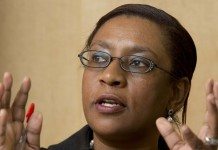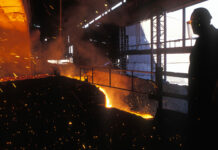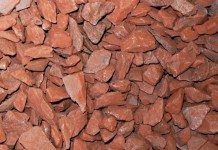
[miningmx.com] – EQUATORIAL Resources, the Australian-listed iron
ore exploration firm, said it anticipated negotiating with Exxaro Resources regarding
a rail-infrastructure share scheme in the Republic of Congo (RoC).
The two companies are investigating iron ore projects either side of an existing
465km, 10 million tonne/year railway line. The line runs from Mayoko near the
border with Gabon to Pointe Noire on the RoC coastline, where a port also exists.
The line requires refurbishment, however. Both Equatorial Resources and Exxaro
Resources have agreements with the RoC’s transport utility, CFCO, to freight 5Mtpa
each on the line – although it’s thought Equatorial Resources has the better
government relationship owing to its time on the ground.
“Exxaro has made it clear that it is coming to the end of a first phase of seeing what
it’s got [in RoC] and where it will go with it. Once they do that, we will have a
substantial discussion,’ said John Welborn, CEO of Equatorial Resources in a
telephonic interview. Welborn recently attended an iron ore industry conference in
Cape Town, where he said the sentiment about the industry’s prospects was
overwhelmingly positive.
Given Exxaro’s background and formation, it had a culture of collaboration and
cooperation, Welborn said. This is a far cry from events earlier this year when it
looked like Equatorial Resources might resist Exxaro’s R2.8bn bid for African Iron,
the firm in which Equatorial Resources had a 20.5% stake. It was conjectured at the
time that Equatorial Resources was either holding out for a bigger premium, or
would force Exxaro to make a consolidatory bid for itself. It seems, however, there’s
been a thawing in the relationship.
“We accepted the Exxaro bid, even though we could have kept a bit of leverage,’
said Welborn. “We’re now definitely in the camp of cooperation,’ he added. Selling
its African Iron stake to Exxaro netted Equatorial Resources R548m (A$65m) and
took total cash resources to A$84m, but the expense of helping to refurbish the line
could he heavily mitigated by a transport joint venture, Australian broker Bell Potter
said in a report in March.
According to the Australian broker, capital expenditure, which would include port
development, could top US$100 per tonne produced, but $50/t if the infrastructure
was shared. This would take total capex to $500m for 10Mtpa on the line consisting
of $150m rail development, $300m for the development of the port and the balance
consisting of working capital. Operating expenditure would be, typically for the
region, $50 to $60/t, Bell Potter said.
“In terms of developing the area, Equatorial Resources can take advantage of
Exxaro’s considerable treasury and experience of moving bulk commodities in Africa,
while Exxaro would benefit form Equatorial Resources’ local operational experience,’
it said. It was unlikely either could lock the other out of the line.
It has been suggested in the past, however, that despite the huge potential for West
Africa to become a significant iron ore exporter, infrastructure development
slippages would give established exporters, such as Rio Tinto and Vale, time to
complete organic expansions. “You need two things for successful iron ore
production,’ said Welborn. “Infrastructure and quality of iron ore,’ he added. “If you
believe even the doomsday outlook for iron ore, of between $80/t to $90/t, our
project would be profitable,’ he said.











